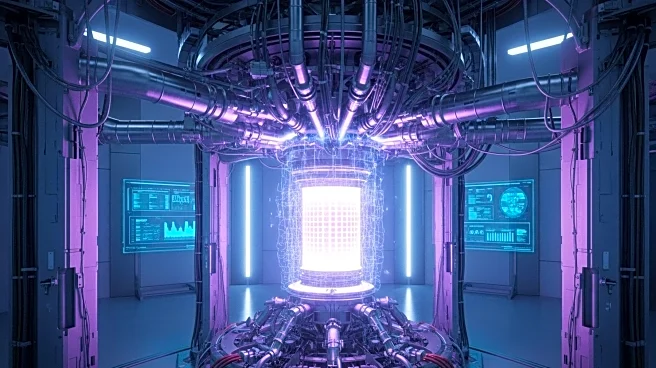What's Happening?
Several utilities are forming partnerships with nuclear fusion startups to potentially deploy the technology at a commercial scale. This follows a significant breakthrough by the U.S. Department of Energy's Lawrence Livermore National Laboratory, which achieved a fusion reaction that generated more energy than it consumed. Fusion startups like Helion and Commonwealth Fusion Systems are planning to build commercial plants in the coming years, with Helion aiming for a 50-MW plant in Washington by 2028 and Commonwealth Fusion Systems targeting a 400-MW plant in Virginia by the early 2030s.
Why It's Important?
The development of nuclear fusion technology could revolutionize energy production by providing a clean, virtually limitless power source. This could significantly impact the U.S. energy sector, reducing reliance on fossil fuels and helping achieve net-zero carbon emissions. However, the technology faces substantial technical challenges, and its commercial viability remains uncertain. Successful deployment could lead to lower energy costs and increased energy security, benefiting both consumers and the environment.
What's Next?
Fusion startups are continuing to refine their technologies, with plans to activate test reactors and commercial plants in the next decade. The industry is attracting significant investment, but technical hurdles remain, and timelines for commercial viability are uncertain. The success of these projects could depend on overcoming challenges related to reactor materials and sustaining fusion reactions.
Beyond the Headlines
The pursuit of nuclear fusion reflects broader trends in energy innovation and the search for sustainable solutions. It highlights the potential for scientific breakthroughs to drive economic and environmental change, though the path to commercialization is fraught with uncertainty.









